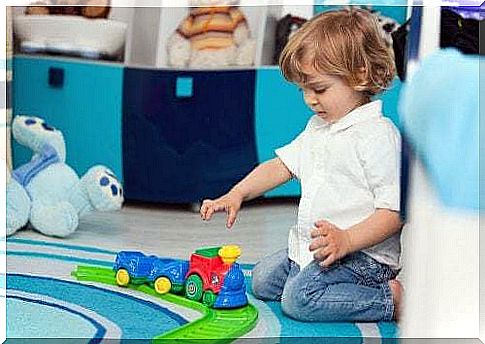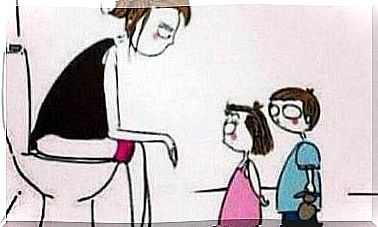How To Overcome The Terrible Two Years

The two years constitute a small adolescence in which the child begins to explore his character and demand autonomy, which often drives parents crazy. So, how to get through the terrible two years?
Two years are a stage of great physiological and psychological changes in children, almost like a little puberty. They begin to ask for autonomy and express their character in ways that, at times, can make adults despair.
This phase can begin around 18 months and last up to four years. It is a normal phase that everyone must go through. Depending on the circumstances of the child and the family, it can be experienced in a more or less intense way. Here’s how to get through the terrible two years.
What are the terrible two years?
Any parent with children who have already passed this age can attest to the radical change experienced by their children once they reach the age of two. Some of the most frequent behaviors are:
- The child becomes capricious and wants to impose his wishes at all costs.
- He becomes self-centered and possessive, he doesn’t want to share his things with others.
- He just says “no” and is stubborn. He does not accept orders or help from adults.
- He gets angry easily, over things of little importance. He cries, shouts and throws tantrums frequently.
- In their eagerness to impose their decisions, some children may begin to refuse food or activities that they previously accepted without problems.
- Despite the attempts of the parents, when a whim occurs, the child does not listen and does not reason.

Understanding the little ones
At this point of confusion and fatigue, many parents wonder what caused the change and turned their little angel into a hysterical and out of control little being. What happened?
At the age of two, the child’s cognitive and motor development evolves considerably. The child is already able to move and walk on his own, just as he can reason and choose. Start knowing what he wants and wants to get it.
Until now, her being was so tied to the main attachment figure (the mother) that she hardly recognized the difference. Now he begins to perceive himself as a separate individual from his mother, with his identity, personality and abilities.
The need for self-determination is unleashed in him, to enjoy and use the freedom he has obtained from his mother. The child begins to explore his tastes, ideas and personality. He wants to choose and do things on his own, without the help or intervention of adults, and he doesn’t like his independence not being respected.
The child now sees his desires but not his limitations. He knows what he wants even if he doesn’t know very well how to achieve it. He begins to be more aware of himself and experiences more complex emotions, such as pride or shame.
However, he still does not have the ability to manage or express his emotions clearly and, in the face of parental rejection, he can only react with tantrums. During the terrible two years, he is unable to understand why he cannot get what he so desires and why he is limited in his choices.
The terrible two years thus become a complicated scenario for both parents and children who, on many occasions, may not know what is happening to them or why they are feeling so angry.

How to get through the terrible two years
Despite being a normal and transitional phase, getting through the terrible two years can be tough for parents. Frustration and helplessness can become part of their daily life, and sometimes you will feel so despondent that you will want to throw in the towel.
It is essential to remember that even if you do everything right, you will not see immediate results in your children. The whims will be there and, even so, the only solution is to undertake a path of patience, love and respect.
- Do not react violently, do not scream or hit your child: keep calm and talk to him with love.
- Mitigate your anger with patience and, once the tantrum is over, explain your reasons to him calmly.
- Yield in moderation. If possible, avoid giving a resounding “no” for an answer. It is preferable to offer several options to choose from. If the child’s desire is acceptable, you may give in. If it’s not acceptable, stand still and be patient in the face of his frustration.
- Try to maintain some routines and warn the child in advance of what will happen. This attitude will provide him with confidence.
- Don’t judge him and criticize him for his tantrums. He doesn’t do it maliciously, he is learning to live and, at this age, some cruel comments can severely damage his self-esteem.









